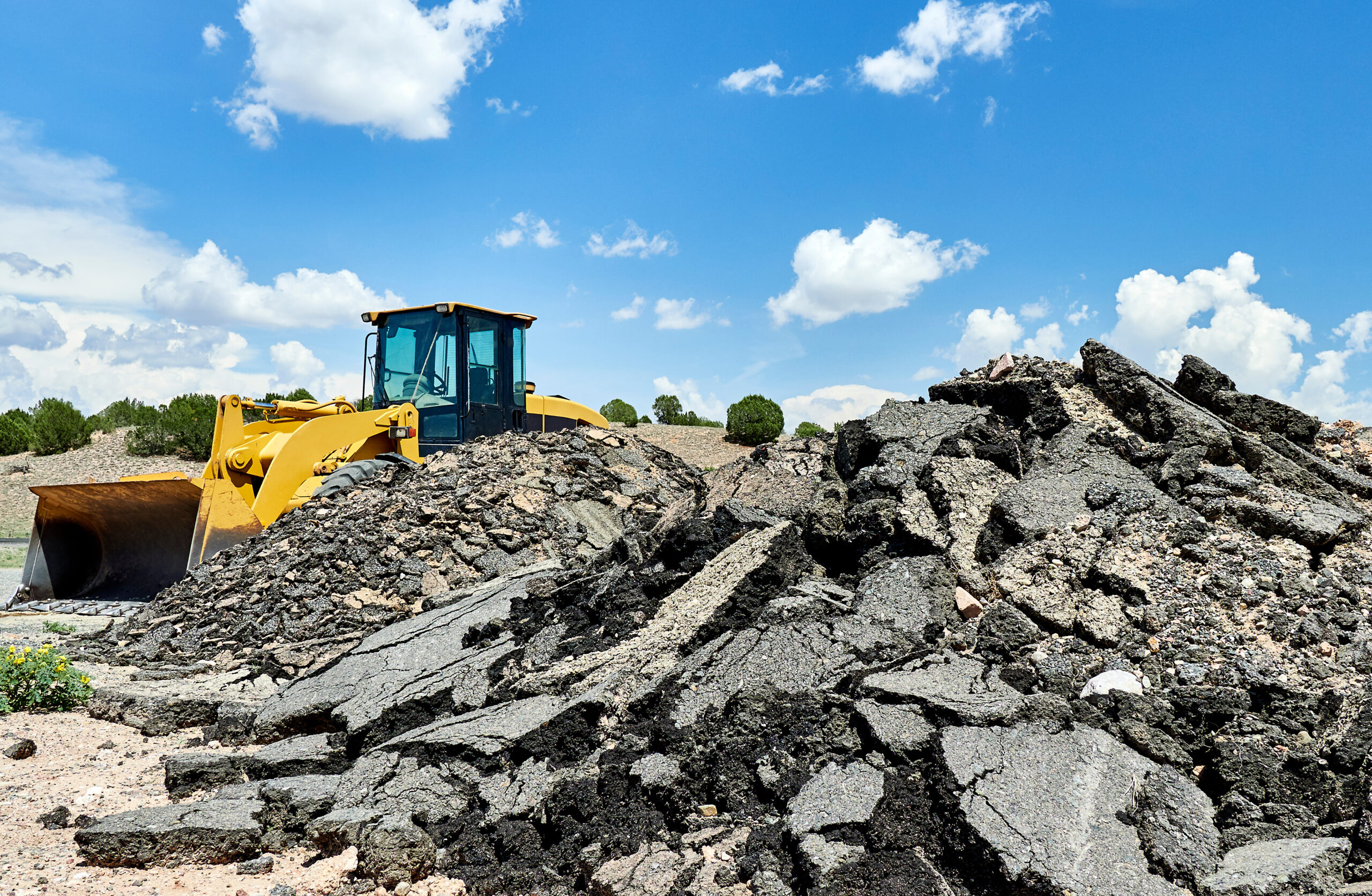In the ever-evolving construction and infrastructure development landscape, one thing is becoming more and more crucial – sustainability. When it comes to that, the asphalt industry has taken a bold step forward by embracing recycling, contributing significantly to a circular economy. This transition is not just about reusing materials; it’s a strategic move toward a more sustainable and economically efficient future. This time on the Sunrise Asphalt blog, we’re going to explain what ‘circular economy’ means, and how asphalt is all about it.
The Essence of Asphalt Recycling
Asphalt recycling isn’t merely a trend; it’s a transformative approach shaping the future of paving projects. It’s the process of reusing reclaimed asphalt pavement (RAP) from existing roads, blending it with new materials, and reprocessing it to create fresh asphalt. This method significantly reduces the need for raw materials and minimizes waste.
Sustainability at Its Core
The environmental benefits of asphalt recycling are substantial. By reusing materials, we decrease the demand for new aggregates and bitumen, the primary components of asphalt. This reduction in raw material extraction leads to lowered energy consumption and a diminished carbon footprint in the production process.
The circular economy concept emphasizes the ‘reduce, reuse, recycle’ mantra. A circular economy is an economic system based on the reuse and regeneration of materials or products, especially as a means of continuing production in a sustainable or environmentally friendly way.
Asphalt recycling perfectly embodies this philosophy by diverting old materials from landfills and incorporating them into new constructions. This minimizes waste and extends the lifecycle of materials, lessening the environmental impact.
Economic Advantages
The economic advantages of asphalt recycling are equally compelling. By utilizing reclaimed materials, paving projects become more cost-effective. The reduced need for new materials translates to lower expenses in production, benefiting both contractors and clients. Additionally, the longevity and quality of recycled asphalt often match or even surpass those of fresh materials, leading to lower maintenance costs over time.
Technological Advancements in Recycling
The advancements in technology have played a pivotal role in enhancing the efficiency and quality of asphalt recycling. Innovations in milling machines and crushing equipment have significantly improved the process of reclaiming old pavement. This modern machinery ensures that the reclaimed materials maintain their quality, allowing for higher proportions of recycled content in new asphalt mixes without compromising performance.
Furthermore, developing rejuvenators—chemical agents that restore the aged bitumen in RAP—has been a game-changer. These rejuvenators revitalize the aged asphalt, allowing for better binding with new materials, and improving the overall performance of the recycled product.
The Lifecycle Approach
Adopting a lifecycle approach to asphalt production and application is crucial. Recycling becomes a cornerstone of a sustainable circular economy by considering the entire lifespan of materials—from extraction to production, use, and end-of-life disposal. Maximizing the use of existing materials and minimizing waste creates a closed loop of resource utilization, aligning perfectly with the principles of sustainability.
Embracing Change for a Better Future
Integrating asphalt recycling into the industry represents a fundamental shift in how we approach infrastructure development. It’s a proactive step toward minimizing environmental impact, conserving resources, and promoting a more sustainable and economically viable future.
The synergy between sustainability and economic benefits is a win-win situation. It reduces environmental stress and offers significant cost savings to all stakeholders involved in the paving process.
Asphalt recycling is not just a solution; it’s a fundamental shift in mindset—a commitment to building a better future. The journey towards sustainability and a circular economy in the asphalt industry isn’t without its challenges, but the rewards are immeasurable. It’s about paving the way, quite literally, for a world where sustainability and economic efficiency go hand in hand.
The asphalt industry is forging a path toward a greener, more sustainable future through innovation, technology, and a collective commitment to change. The key lies in embracing these advancements and promoting the virtues of a circular economy, where sustainability and economic benefits intersect harmoniously, laying the groundwork for a more prosperous and environmentally conscious tomorrow. Here at Sunrise Asphalt, we’re proud to be a part of that kind of work!




